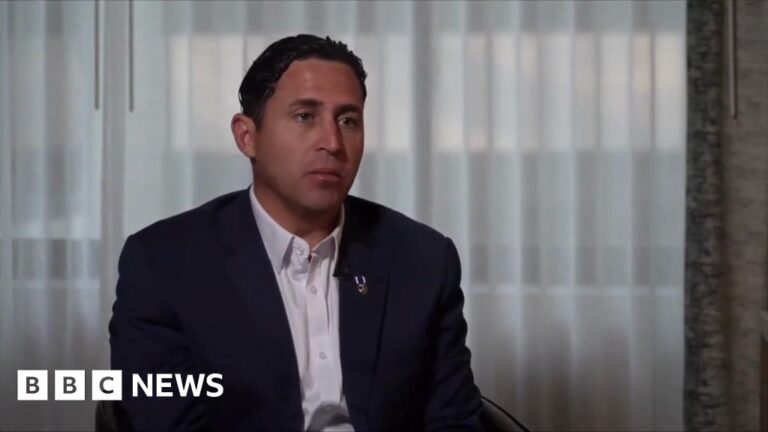Here is the result in plain text:
Special education teacher Robin Ginkel has spent almost two years fighting with her insurance company to get it to pay for back surgery that her doctors recommended after a work injury left her with a herniated disc and debilitating pain.
The plan didn’t seem “ridiculous”, she said: “I’m asking to get healthcare to return to a normal quality of life and return to work.”
Initially rejected, the 43-year-old from Minnesota spent hours on hold appealing the decision – even lodging a complaint with the state – only to see her claims denied three times.
Now she is bracing for the battle to start again, after deciding her best option was to try her luck with a new insurance company.
“It’s exhausting,” she said. “I can’t keep going like this.”
Roughly one in five Americans covered by private health insurance reported their provider refused to pay for care recommended by a doctor last year, according to a survey by health policy foundation KFF.
Brian Mulhern, a 54-year-old from Rhode Island, said his health insurance firm recently rejected a request to pay for a colonoscopy after polyps were discovered on his colon – a discovery that prompted his doctor to advise a follow-up exam within three years instead of the typical five.
Faced with $900 in out-of-pocket costs, Mr. Mulhern put off the procedure.
Long simmering anger about insurance decisions exploded into public view earlier this month after UnitedHealthcare CEO Brian Thompson was murdered – and the killing unleashed a startling wave of public outrage at the industry.
The crime sent shockwaves through the system, prompting one insurance company to reverse a controversial plan to limit anesthesia coverage, and hit the share prices of major firms.
Though the reaction raised the possibility that scrutiny might force change, experts said addressing the frustration would require action from Washington, where there is little sign of a change in momentum.
Many advocates are also concerned about problems worsening, as Donald Trump returns to the White House.
The president-elect has pledged to protect Medicare, which is government health insurance for over-65s and some younger people. He is known for longstanding criticism of parts of the health industry, such as high prices for medicines.
But he has also vowed to loosen regulation, pursue privatization, and add work requirements to publicly available insurance and cut government spending, of which healthcare is a major part.
“The way things stand today, healthcare is a target,” said David Lipschutz, co-director of the Center for Medicare Advocacy, a non-profit that seeks to advance comprehensive Medicare coverage.
“They’re going to try to take people’s health insurance away or diminish people’s access to it and that’s going in the opposite direction of some of these frustrations and would only make problems worse.”
Unhappiness with the health system is longstanding in the US, where experts – including at KFF – point out that care is more expensive than in other countries and performance is worse on basic metrics such as life expectancy, infant mortality, and safety during childbirth.
The US spent more than $12,000 per person on healthcare in 2022 – almost twice the average of other wealthy countries, according to the Peter G Peterson Foundation.
Source link




